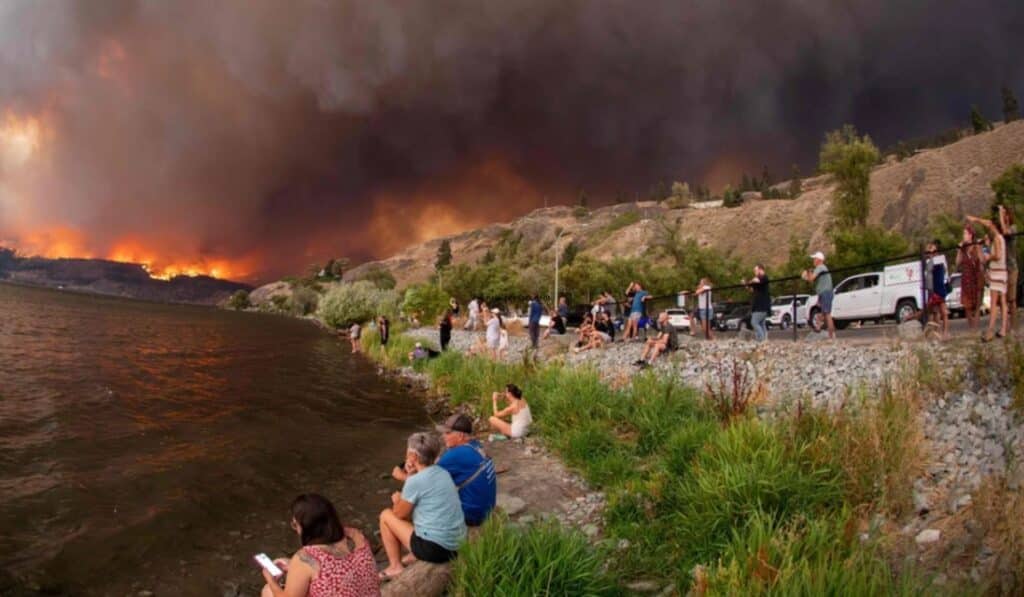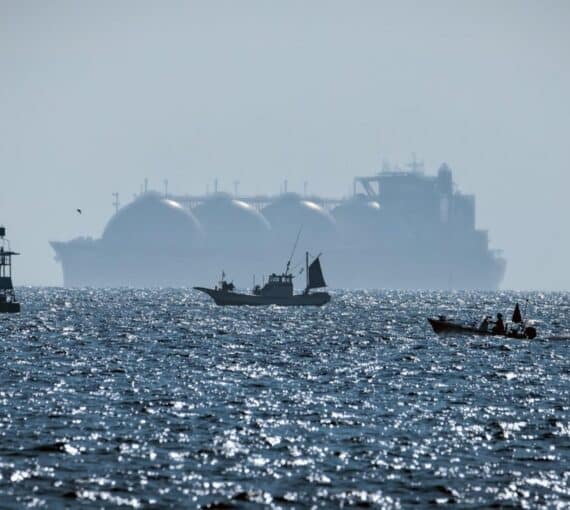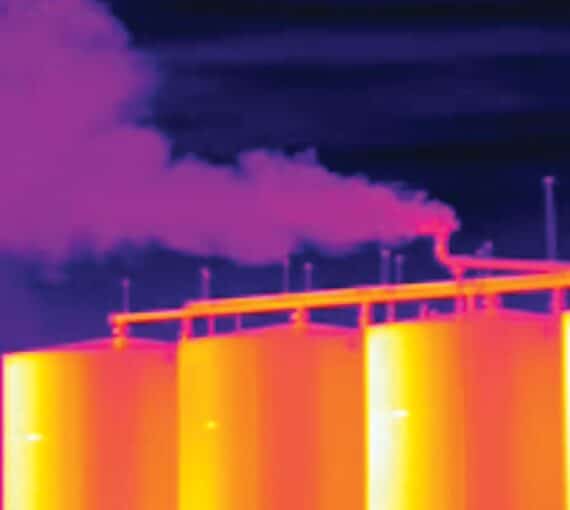
Unprecedented fires. Unprecedented drought. Unprecedented heat. It seems the new precedent is the unprecedented in the now thoroughly unignorable climate crisis. (Photo: Darren Hull)
Unprecedented. How many times have you heard or read that word in recent months? Unprecedented fires. Unprecedented drought. Unprecedented heat. It seems the new precedent is the unprecedented in the now thoroughly unignorable climate crisis.
And it’s an exhausting way of life, toggling from one disaster to the next, witnessing the profound loss, sorrow and trauma of people we may or may not know — from Greece to Nova Scotia to Kelowna. Everything everywhere all the time.
The urge to protect all that we love is eternal, hardwired into our psyches. But something has shifted this summer. There’s a new existential reality starkly confronting every one of us. A new kind of threat that is qualitatively different from all the scourges that have ever been visited on humanity. It’s harrowing in a new way — the climate crisis we all face and our limited individual power to protect all we love against its searing impacts.
To say that we aren’t ready for this moment is to state the obvious. We see that in the heroic yet overwhelmed firefighters who — faced with the sheer volume of fire-breathing dragons and other terrifying elements of this chapter in human history — can sometimes do little else than to get out of the way.
Our institutions, our politics, our adrenal and parasympathetic nervous systems — none of what we know and none of what we are at basic biological, neurochemical and societal levels are built for this moment. As Sarah Henderson, scientific director of environmental health services at the B.C. Centre for Disease Control, says: “How do we prepare for what we’ve never seen before?”
“How do we prepare for what we’ve never seen before?”
And yet here we are.
During the most menacing days of the endlessly unprecedented fire season in B.C., many of us became attentive viewers of the provincial government’s wildfire briefings. The premier and minister of emergency management and climate readiness’s sincerity and diligence were palpable. And their goal of reassuring people was admirable.
But the forces we have collectively unleashed by our addiction to fossil fuels are far bigger than any government anywhere — even though protecting all of us from the spiralling climate crisis is the responsibility of governments everywhere, especially those in high-per-capita-emitting and major-fossil-fuel-producing countries like Canada.
So, what will be their response? What will the B.C. government do? What will the federal government do? B.C. has endured some of the worst planetary impacts of this year’s unprecedented wildfire season.
Extreme drought conditions are now interspersed with supercharged storms and extreme floods.
How will government — that innately conservative institution — fundamentally pivot and embody an entirely different way of being and seeing on this entirely new planet we have created?
How will government — that innately conservative institution — fundamentally pivot and embody an entirely different way of being and seeing on this entirely new planet we have created?
An obvious starting point in this time of non-stop emergency would be to immediately act to limit the source of the lethal chaos of climate breakdown. That means not allowing any more fossil-fuel infrastructure to be built anywhere, as the world’s leading energy market experts and climate scientists have been telling us again and again.
Here in B.C. — where our household has had evacuation supplies packed and ready for months, as the wildfires rage and we live day and night with extreme fire risk — that means saying no to any more liquefied natural gas projects. LNG is just another fossil fuel and not a climate solution, no matter how many millions of dollars Big Oil and Gas spend on advertising and lobbying, peddling their deadly story as they fill their coffers by record profiteering, at a rate of more than $3 billion per day.
This new world is one of near constant peril. And yet, even in this terrifying time, we have reason to hope, as the solutions to climate chaos are available now. Clean, renewable energy is here. It’s cheap and efficient. It’s growing quickly. And all of our governments — regardless of political brand — need to do literally everything they can to change how we power life here on Earth. The alternative is simply too grim to contemplate.
This op-ed was originally published in The Province.
Always grounded in sound evidence, the David Suzuki Foundation empowers people to take action in their communities on the environmental challenges we collectively face.


